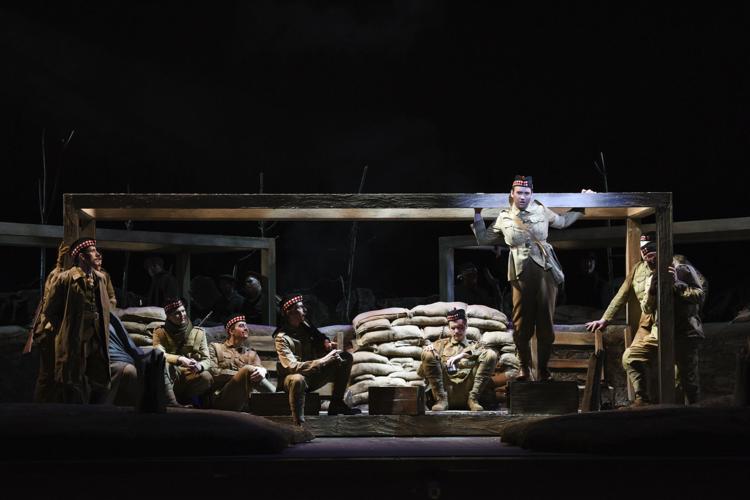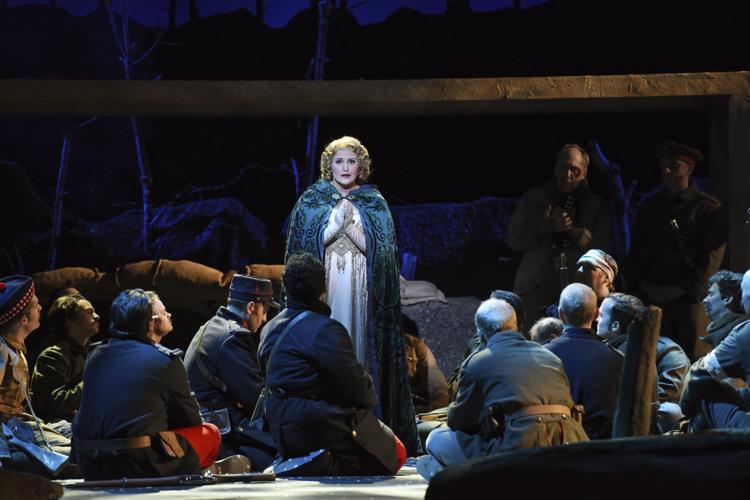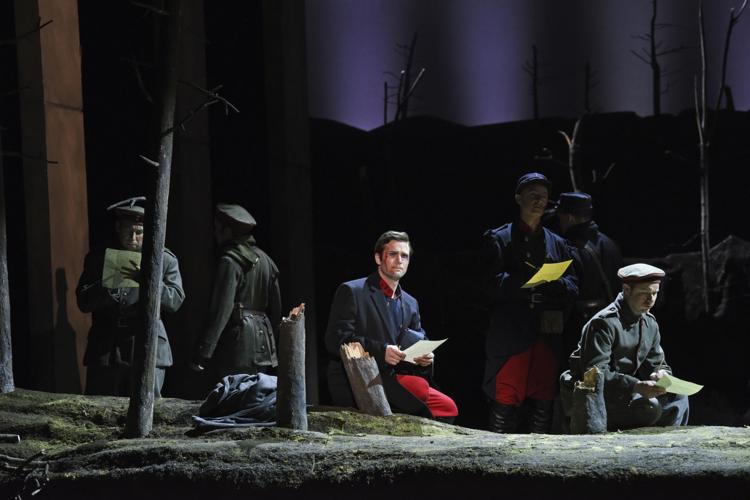On Christmas Eve 1914, in what history has recorded as one of the most remarkable events in modern wartime, soldiers on the frontlines of World War I put down their guns, crossed enemy lines and called an informal, temporary truce.
They exchanged souvenirs, from the buttons on their uniforms to alcohol and cigarettes. It was, of course, short-lived, but for those precious pre-Christmas hours in the early days of World War I, men who were hell-bent on killing one another saw themselves as neighbors.
Composer Kevin Puts and librettist Mark Campbell re-created that truce in their Pulitzer Prize-winning opera “Silent Night,” which Arizona Opera brings to Tucson this weekend.
Based on the French film “Joyeux Noel,” “Silent Night” opens in an opera house in Berlin, where two lovers are coming to terms with having to separate because of the war.
“I loved the way that it was so far removed and you had to find your way into the story,” said Puts.
“The music that I began with is very much in the style of an 18th-century opera, and I thought that was so compelling that that was the way it was going to start and the audience would go, ‘What is this?’ And eventually you would find out that one of the singers in this opera you are hearing is going to be enlisted and will be embroiled in this crazy moment that really happened in history.”
Before “Silent Night,” Puts, whose symphony and chamber works are widely played, including this week as part of the Tucson Winter Chamber Music Festival, had never composed an opera — although he certainly flirted with the idea.
“People had always said you should try an opera because my music has a storytelling aspect to it,” he said. “I feel very lucky that this came about and opened up the world of opera for me, which I love. It’s not the only thing I want to do, but it’s certainly something that I want to do.”
Campbell was on opera 10 or 11 when his and Puts’ creative paths crossed courtesy of Minnesota Opera President Dale Johnson, who commissioned the opera. Puts and Campbell had never met, but they went to dinner and by the end of the night decided they were musically aligned.
“I had listened to his music and I heard in it this really beautiful, strong narrative,” Campbell said.
“I also knew that he was a composer who really wanted to go for the heart, and that’s something that I want to go for as well.”
From the audience’s reaction at the 2011 world premiere, Campbell realized they had a hit on their hands. Amidst the applause that night, he whispered in a friend’s ear: “If I walk home tonight and a bus hits me and I die, at least I knew I wrote ‘Silent Night.’”
But neither he nor Puts ever imagined that their opera would win a Pulitzer Prize, a high and rare honor for any opera composer much less one who had never before dabbled in the genre.
And the idea that it would be a hit with opera companies?
“It’s too big, it’s too expensive. Nobody’s going to put up the expense,” was Puts’ reaction. “And the other thing is there are no women; there is one woman for a small part.”
“From a composer’s perspective, it’s kind of interesting to have one female voice amidst all these men,” he said. “It’s sort of interesting musically to set up certain arias in a way that her voice is set apart from the rest of the cast.”
Arizona is the 23rd company to mount the opera, which was the first of three works Puts and Campbell wrote together. Campbell said he thinks the opera’s message resonates with audiences.
“I think ultimately, at the end of this opera, there’s a message of hope that says we can find peace together,” he said.






